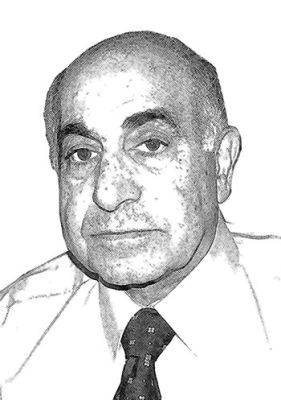Among the many issues tackled in His Majesty King Abdullah’s sixth Discussion Paper is the concept of the civil state. The King clearly defined what he meant by “civil state” and clarified any previous misunderstandings of this crucial issue. Nevertheless, some analysts remained confused.
“The term ‘civil state’ has been actively debated recently,” the Monarch said, adding that some “even contested the concept, which seems to be the result of confusion and lack of understanding of what it really stands for”.
It was this particular misunderstanding that the King’s paper sought to clarify, which it perfectly did.
The following is the King’s definition of what he affirms are the “principles that constitute the essence of the civil state”: “A civil state is one that is covered by a constitution and laws that apply to all citizens without exception. It is a state of institutions that guarantee separation of powers through a system of checks and balances, preventing any power from encroaching on the other. It is a state built on peace, tolerance and harmony and is distinguished for respecting and safeguarding pluralism, respecting different opinions and protecting all members of the community, regardless of their religious or intellectual affiliation.
“It is a state that protects rights and guarantees freedoms, where all are equal in their rights and obligations. It is a state to which citizens resort when their rights are violated. It guarantees religious freedoms for its citizens and enroots tolerance and respect of others in society. It protects all rights of women and minorities.”
If the term “civil state” has been defined in countless ways by political scientists and legislators, I honestly see no need, for our specific purpose in this country, to conduct any further research once such a thorough and comprehensive definition of what the civil state can offer its citizens is at hand.
Another sensitive aspect of the civil state addressed by King Abdullah is the relationship between religion and state.
He emphasised that a “civil state” is not “synonymous with a secular state”, because, “in a civil state, religion is a key contributor to the value system and social norms”, and because “religion is also enshrined in our [Jordanian] constitution”.
With this qualification, King Abdullah was illustrating the complete structure of what the democratic civil state of the Hashemite Kingdom of Jordan would ultimately be.
Broadly speaking, secular states do exclude religion. While they do not ban people from practising their religious beliefs, or restrict religious freedom, they do not allow religion to interfere in the affairs of the state, in order to avoid possible contradictions in societies that include various religious communities.
In this sense, the Jordanian model is unique. Although religion is enshrined in the Jordanian constitution, the constitution safeguards pluralism, guarantees freedom of religion, equality before the law of all citizens and the state does not “allow anyone to manipulate religion to serve political interests or gains for a specific faction”, as the discussion paper plainly stipulates.
This is what distinguishes the Jordanian experience.
Even though the country is right at the centre of a turbulent region, and despite mounting challenges resulting from ongoing regional chaos, it remains safe, stable and secure.
The harmonious multi-ethnic, multi-religious Jordanian society is a crucial contributing factor to the country’s political stability.
Is Jordan, therefore, the civil state His Majesty King Abdullah envisions?
The answer is definitely affirmative.
We might not yet be at the final phase of accomplishing what the King has in mind, but the six discussion papers, particularly the last one, offer a detailed roadmap for reaching our goal of a democratic civil state for all its citizens.
The good news is that the Jordanian march towards this grand goal is moving well with King Abdullah steering the ship to the shores of safety.
